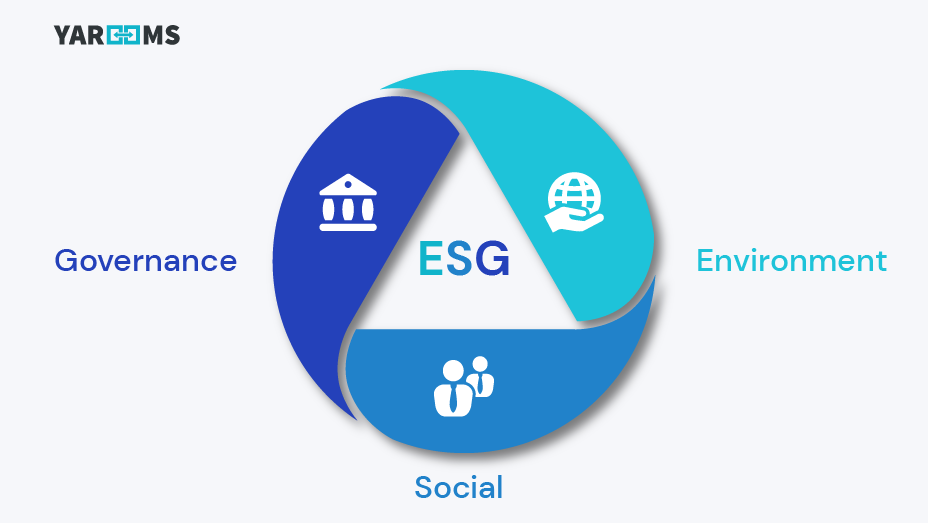ESG is more than you think. It encompasses an organization’s impact on the environment and society, as well as a broad range of issues that can influence a company’s long-term sustainability and performance. In simple words, it stands for “environmental, social, and governance”, and reporting on all these factors has become an essential tool for organizations to demonstrate their commitment to sustainability and responsible business practices.
Although the three components of ESG are interconnected, the Social aspect has gained importance for investors who wish to steer clear of companies with a history of human rights violations or questionable political affiliations. In today’s article we try to get a sense of what the “S” in the ESG means. So, the question we asked ourselves is “How does a company manage the relationship with its workforce, the societies it operates in as well as with the political environment?” We formulated some possible answers.
TL;DR:
- Understanding the "S" in ESG (Environmental, Social, Governance) is crucial for companies aiming to improve overall sustainability.
- The social aspect involves values, ethics, and community impact, gaining importance as consumer preferences align with sustainability.
- Socially responsible practices attract customers and talent, enhance employee engagement, and ensure long-term profitability. They impact sustainability and profitability, aligning with investor preferences.
- Challenges in measuring the social impact include the lack of standardization and diverse stakeholder perspectives, while the key metrics encompass employee satisfaction, diversity initiatives, and health and safety standards.
- Companies should implement a range of practices, from diversity initiatives to data protection, and robust measurement frameworks to enhance social performance and maintain a competitive edge.
What does the “S” in ESG stand for?
A recent study from IBM Institute for Business Value found that 76% of executives say ESG is central to their business strategy and more than 7 in 10 (72%) approach it as a revenue enabler rather than a cost center. And while the environmental aspect of ESG is possibly the best understood element of the acronym, people tend to be less familiar with its social pillar.
“Social” typically refers to an organization’s values, policies and practices around factors such as human rights, business ethics, diversity and inclusion, supply chain management and the social impact of its operations. It has become a vital aspect as roughly 68% of consumers say environmental sustainability and social responsibility (65%) are very or extremely important to them.

Key Aspects of ESG’s Social Pillar
Some key social aspects include the organization's labor practices, human rights policies, community engagement, diversity and inclusion, political ties, supply chain social risks and others. For example, in the business landscape, the crux lies in fostering strong relationships with employees, customers, and suppliers. A failure to align staff compensation with industry standards may lead to talent drain, while high employee turnover signals lower job satisfaction.
Secondly, encompassing local engagement and diversity and forging community relations, further contribute to a company's success, with proactive recruitment and philanthropy efforts enhancing community ties. Embracing gender equality and diversity and focusing on human rights, ethical sourcing, and anti-corruption measures builds an ethical culture, reinforcing a company's reputation and appeal to investors.
Additionally, corporate political affiliations and supply chain risks are increasingly significant. Investors seek alignment with their preferred causes, and any misalignment on political issues can harm a company's reputation. Robust supply chain management is vital, addressing risks such as bribery, labor conditions, and environmental impact, preventing disruptions and safeguarding the company's image and sales.
Consumers care about aspects such as child labor and compulsory labor (70%), human rights (69%), health and safety (73%), but companies tend to focus on a narrower set of issues, often falling victim to carbon tunnel-vision and forget that the social impact matters as much, if not more. What are they losing sight of?
Why Is Social Impact Important?
Focusing on social impact is crucial as it reflects a company's commitment to ethical practices, fair treatment of its workforce, and positive contributions to the communities it operates in. This not only mitigates risks tied to employee dissatisfaction and community backlash but also enhances long-term sustainability and resilience.
For example, workforce issues, such as labor strikes and consumer protests, can affect profitability by creating talent shortages or damaging the company's reputation. Safety implications of products and geopolitical risks in the supply chain also present potential risks. According to a BNP Paribas’ ESG Global Survey 2021, brand and reputation (59%) has overtaken returns (45%) as the main ESG driver, signaling the growing importance of ESG as a societal issue.
No wonder investors increasingly recognize that a strong social impact positively correlates with financial performance and long-term value creation, making it a key determinant in ESG assessments and an integral component for businesses striving to thrive in a socially conscious and responsible marketplace.
Benefits for Companies That Prioritize Social Responsibility
Socially responsible companies attract and retain customers, who are increasingly inclined to support businesses aligned with their values. This IBV study found that roughly 6 in 10 consumers say at least half of their purchases were branded environmentally sustainable or socially responsible. What’s more, nearly half have paid a price premium for environmentally sustainable or socially responsible products in the last year (2022).
Furthermore, social responsibility becomes a powerful tool for enhancing employee motivation and engagement. According to Harvard Business School, employees working for socially responsible companies are more inspired, motivated, and loyal. This engagement translates into tangible benefits for the company, with research revealing a 17% increase in productivity, 21% higher profitability, and 41% lower absenteeism among engaged employees.
Ultimately, the investment in corporate social responsibility not only fosters positive community impact but also yields profitability and overall success. Similarly, organizations showcasing trustworthy successes in gender parity and diversity report a 19% higher rate of revenue growth than others.

Challenges in Measuring the "S" in ESG
51% of investors find the S to be the most difficult area of ESG to analyze and embed into investment strategies. Simply put, the S is vast and covers issues such as (but not limited to): labor standards, human rights, pay equity, workplace diversity, talent attraction and retention, health and safety, consumer rights, data protection and cyber-security, community impact activity and social justice.
Measuring the “S” in ESG can leave practitioners feeling overwhelmed. Here are some of the challenges:
- The lack of standardization - unlike environmental and governance metrics, there is no universal standard for measuring social impact. The "S" in ESG encompasses a wide range of factors, making it difficult to establish standardized metrics for comparison.
- Data availability and reliability – gathering reliable and comprehensive data on social issues can be a challenge. Companies may struggle with obtaining accurate information related to their workforce, supply chain practices, or community impact.
- Diverse stakeholder perspectives – stakeholders, including employees, customers, and communities, may have diverse and sometimes conflicting perspectives on what constitutes positive social impact. Balancing these perspectives and determining which metrics are most relevant can be a hassle.
- Rapidly evolving landscape - social expectations and issues are continually evolving, driven by changes in societal norms, regulations, and global events. Organizations must keep up with these dynamic factors and adjusting measurement frameworks accordingly. For example, EU’s Corporate Sustainability Reporting Directive (CSRD) will require major businesses to report on environmental and human rights, social standards and work ethics issues starting with 2025 for the current fiscal year.
Getting started requires identifying the most impactful social issues and prioritizing them strategically within a company's sustainability and core business strategies.
Key Metrics and Indicators Used to Measure the Social Dimension
In the past, companies could rely on a human rights policy expecting compliance throughout the organization. However, with increasing investor scrutiny, there's now a demand for more detailed information on how companies measure and address the “S” in ESG.
For example, the Organization for Economic Co-operation and Development (OECD) categorized firms' non-financial performance measurement into three scopes, following the categorization used for the environmental aspects in ESG:
- "Scope 1" involves assessing the well-being outcomes of stakeholders within the organizational boundaries, such as employees, and the direct impact on resources relevant to society.
- "Scope 2" focuses on the impacts of products and services on consumer well-being, occurring outside the firm's operational boundaries and varying based on the nature of the provided product or service.
- "Scope 3" pertains to the well-being of employees in the supply chain and communities, measured within the organizational boundaries of other firms or external stakeholders.
We’ve gathered more insights on the recurring indicators:
Employee Satisfaction and Engagement
The OECD suggests numerous well-being indicators, covering employment, earnings, learning and skills, health, social support, work/life balance, and employees' voices and feedback. High levels of employee satisfaction indicate contentment with work conditions, company culture, and management practices, contributing to overall organizational success. Engaged employees are more likely to be productive, innovative, and committed to their roles, fostering a positive work environment and reducing turnover rates.
Diversity and Inclusion Initiatives
These initiatives go beyond numerical diversity to ensure fair representation, equal opportunities, and a supportive environment for employees of all backgrounds. Organizations need a comprehensive approach to measuring inequalities, such as the OECD Well-being Framework. This framework helps assess a business's impact on societal inequalities and identify financially significant risks and opportunities in the social domain, while considering disparities among different groups, such as gender, race, ethnicity, and skill levels. Monitoring the effectiveness of inclusion initiatives helps companies align with societal expectations and improve their social performance within the ESG framework.
Health and Safety Standards
Health and safety standards are critical social indicators within ESG, emphasizing a company's responsibility for the well-being of its employees. According to SASB, these standards encompass measures to ensure a safe working environment, compliance with health and safety regulations, and protocols for emergencies. Prioritizing health and safety not only protects employees but also contributes to operational resilience, mitigates risks, and fosters a positive corporate culture.
Finally, community impact indicators, such as philanthropic investments, volunteering initiatives, and assessments of local community well-being, empower investors and stakeholders to assess a company's societal impact in a holistic manner when placing the bet on its future.
Why Investors Consider Social Factors in Their Investment Strategies
There are several reasons why social factors are increasingly on the agenda for investors and their stakeholders. These include rising pressure and scrutiny from consumers, employees, financiers, and activists. Investors consider that a company's positive social practices, such as fair labor standards, diversity and inclusion, and community engagement, contribute to a positive corporate image, mitigating reputational risks and enhancing long-term profitability.
Regulatory pressures also play a significant role in influencing investor decisions. Governments worldwide are emphasizing corporate responsibility, and regulations are evolving to hold companies accountable for their social impact. Investors who consider social factors are better positioned to anticipate and adapt to changing regulatory environments, reducing the risk of financial penalties or legal challenges.
In terms of profitability, companies with strong social performance often outperform their peers in the long run. But how can companies improve their social performance and thus, attract investors?

Practices That Companies Can Implement to Improve Their Social Performance
To build a positive social reputation, organizations should implement a range of practices across various dimensions, such as:
Diversity, Equity, and Inclusion
Organizations can enhance innovation and decision-making by promoting workplace diversity, equity, and inclusion (DEI). Moreover, setting diversity hiring goals and implementing targeted recruitment strategies broadens the candidate pool for a more inclusive workforce and sets the course to improved ESG performance.
Ethical Labor Practices
Fostering fair wages, benefits, and safe working conditions through regular wage assessments and comprehensive safety training is essential for companies. These policies contribute to a supportive and motivated workforce and demonstrate a commitment to human rights and ethical business conduct, boosting productivity and profitability.
Employee Experience & Well-being
Prioritizing employee well-being yields benefits such as increased satisfaction, lower turnover, and heightened productivity. Companies can institute holistic wellness programs encompassing fitness classes, stress reduction workshops, parental and family support initiatives, and mental health resources to foster physical and mental health. This showcases a commitment to employee welfare but also helps improve social sustainability.
Investment in Communities and Volunteering
Companies should invest in local communities to build positive relationships with stakeholders. For example, they can collaborate with local nonprofits and organizations to identify opportunities for employee involvement in supporting local businesses, education programs, or environmental conservation efforts. One practical way companies do this is through peer-to-peer fundraising platforms, which let employees create their own mini-campaigns to rally support for local nonprofits and community projects. This approach not only boosts engagement but also strengthens accountability and impact.
Improving Stakeholder Engagement
To enhance social impact and address concerns, companies should adopt a multi-channel stakeholder engagement strategy, involving surveys, town hall meetings, webinars, advisory boards, and social media interactions. This diverse communication approach helps reach a broad spectrum of stakeholders, fostering trust, transparency, and alignment with societal values.
Support for Learning & Development
Investing in education and skill development empowers a company’s employees, leading to innovation and improved ESG performance. It not only ensures a competitive edge but also reflects a company's dedication to social responsibility and sustainable, long-term value creation.
Protection of Data Privacy and Security
To fortify their social performance and overall ESG standing, companies should conduct regular data security audits, invest in robust cybersecurity measures, and involve employees through training in data protection best practices. This proactive approach ensures the protection of sensitive information, fostering trust among stakeholders and positively influencing investor and customer perceptions.

Key Takeaways
ESG has become central to business strategy. Executives increasingly view Environmental, Social, and Governance (ESG) factors not only as nice-to-have, but as an opportunity to become more profitable, with a focus on the often-overlooked social pillar. Social responsibility, encompassing values, ethics, and community impact, plays a pivotal role as consumer preferences align with sustainability. Key aspects include labor practices, human rights, and diversity, while challenges in measurement arise from lack of standardization and diverse stakeholder perspectives. Socially responsible practices yield benefits, attracting customers and top talent, enhancing employee engagement, and ensuring long-term profitability.
Investors are starting to prioritize social factors due to evolving regulations, so it will become increasingly important for companies to embrace ESG to maintain a competitive edge and meet the stakeholders’ expectations. Turns out that the future can be as bright as we want it to be!









